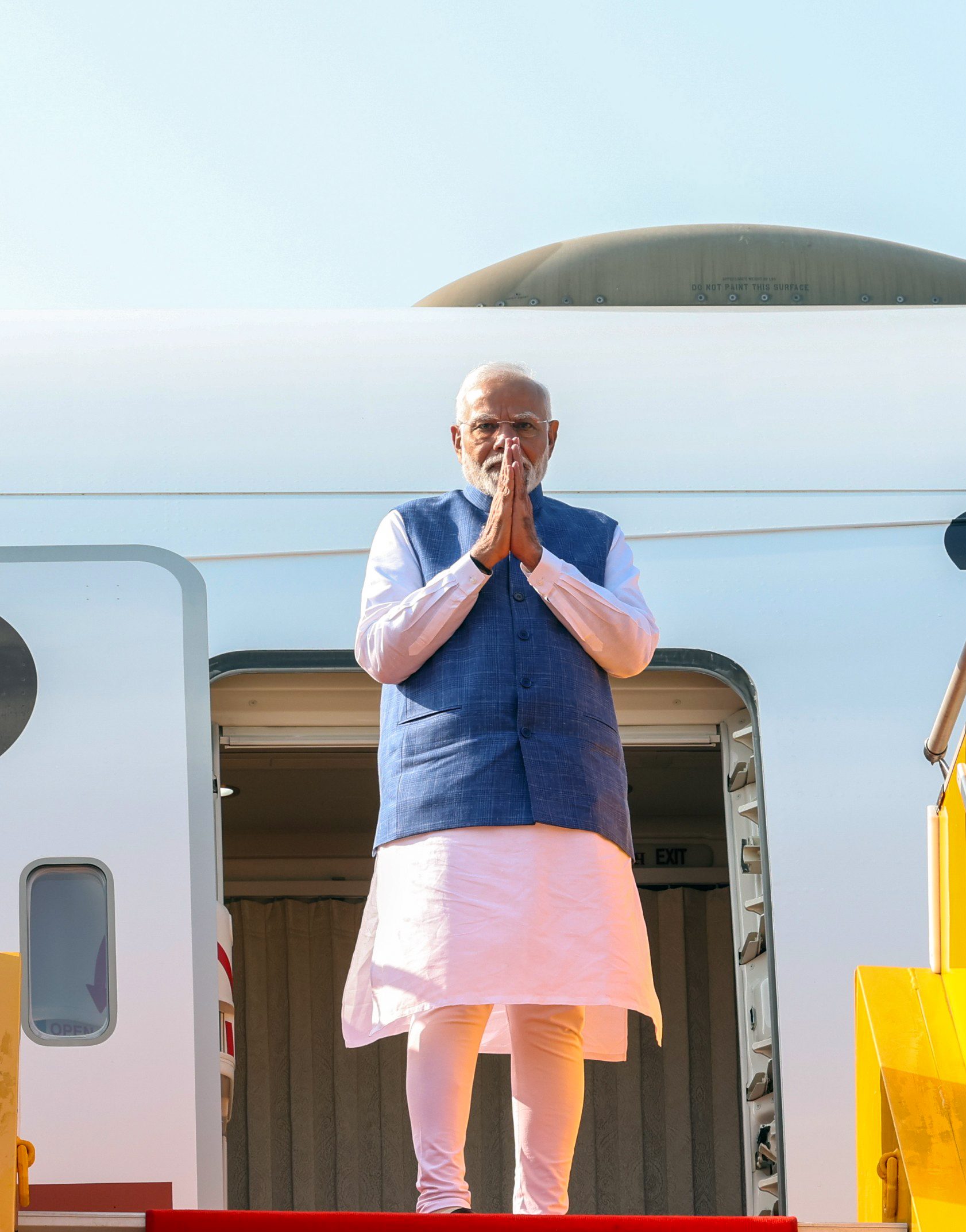Prime Minister Narendra Modi on Tuesday departed for his two-day visit to Russia to attend the BRICS Summit in Kazan. The 16th BRICS Summit in Kazan is being held under the chairmanship of Russia from October 22-24. During his visit, PM Modi is also expected to hold bilateral meetings with his counterparts from BRICS member countries and invited leaders in Kazan.
The Ministry of External Affairs (MEA) said, “The Summit, themed ‘Strengthening Multilateralism for Just Global Development and Security,’ will provide an important platform for leaders to discuss key global issues.”
It further said, “The Summit will offer a valuable opportunity to assess the progress of initiatives launched by BRICS and to identify potential areas for future collaboration.” It will be PM Modi’s second visit to Russia in 2024 as he travelled to Moscow in July to attend the 22nd India-Russia Annual Summit.
During his last visit to Russia, PM Modi held a bilateral meeting with President Putin. He was also conferred with Russia’s highest civilian award, the Order of St. Andrew the Apostle at the Kremlin in Moscow.
Indian Ambassador to Russia, Vinay Kumar, said on Monday that India is a founding member of BRICS and is committed to economic cooperation within the framework of BRICS, which he stressed was a “very foundational principle.”
In an interview with ANI, Vinay Kumar stated that some of the issues that are on the agenda in the BRICS Summit include further expansion of economic cooperation, trade settlement in national currencies, sustainable development, particularly PM Modi’s LiFE mission to address the problems of climate change, to work towards further digital inclusion, financial inclusion of the marginalized sections of society, and some of the achievements of India.
On being asked about India’s agenda for the BRICS Summit, Kumar said, “India is a founding member of BRICS and is committed to economic cooperation within the framework of BRICS, which was a very foundational principle. In these years, there is growing interest in the international community, among a number of countries of Global South and others to cooperate with BRICS. The main issues that we would be dealing with include what the BRICS has been dealing with, though I cannot prejudge the leader’s conversation.”
“But some of the important issues that are on the agenda is further expansion of economic cooperation, trade settlement in national currencies, sustainable development, particularly Prime Minister’s life mission to address the problems of climate change, to work towards further digital inclusion, financial inclusion of the marginalized sections of society, and share with the fellow members of BRICS some of the achievements in India, women-led development, DPI, or UPI, how to make these more widely acceptable. Essentially, deepening the economic cooperation and sharing the benefits with the larger part of the Global South,” he added.
BRIC, as a formal grouping, started after the meeting of the Leaders of Russia, India and China in St Petersburg on the margins of G8 Outreach Summit in 2006.
The grouping was formalized during the first meeting of BRIC Foreign Ministers on the margins of UNGA in New York in 2006. The first BRIC Summit was held in Russia’s Yekaterinburg in 2009.
It was agreed to expand BRIC into BRICS with the inclusion of South Africa at the BRIC Foreign Ministers’ meeting in New York in 2010. South Africa attended the 3rd BRICS Summit in Sanya in 2011. A further expansion of BRICS took place in 2024 with five new members – Egypt, Ethiopia, Iran, Saudi Arabia, and the United Arab Emirates.
Elaborating on PM Modi’s engagements in Russia, the Indian envoy said, “Prime Minister’s main engagement is of course participation in the BRICS summit. Other than that, he would have some bilateral meetings also on the sidelines of the summit. One of them which is firmed up is with President Putin. Some others may also work out once we have, you know, resolved the scheduling-related issues.”
He recalled that PM Modi and Russian President Vladimir Putin during the former’s visit to Moscow in July had set a trade target of USD 100 billion by 2030. He noted that two nations have been working on plans and activities to achieve the trade target of USD 100 billion by 2030. He also said that the next meeting of the India-Russia Intergovernmental Commission is scheduled in November.
Highlighting India-Russia bilateral ties, he stated, “Since the Prime Minister’s visit to Moscow in July, when the two leaders decided on the trade target of USD 100 billion by 2030, we have been working to concretized activities and plans, programs to achieve that target. A number of joint working groups have held their meeting in this period and the next meeting of the Intergovernmental Commission is scheduled in November, where the new targets in various sectors will be finalized by the two co-chairs.”
“From our side, it will be External Affairs Minister. From the Russian side, it will be first deputy Prime Minister, Denis Monturov. So I, again, do not want to prejudge what the leaders will talk about. But, certainly they will review the momentum in bilateral relations and cooperation since they met last and also perhaps give new directions for us to you know carry forth this relationship,” he added. (ANI)














